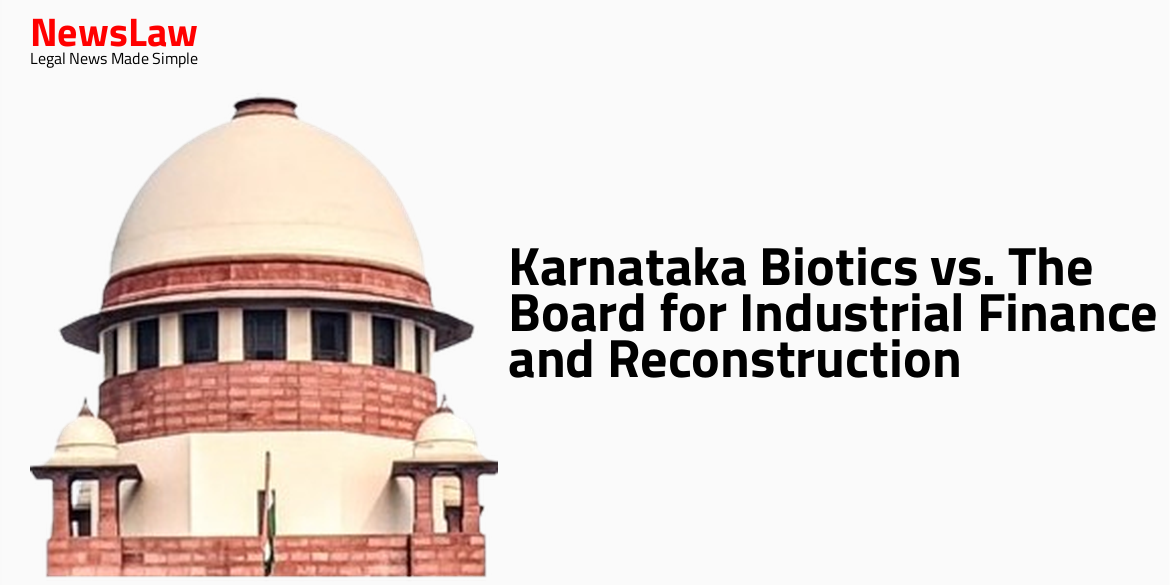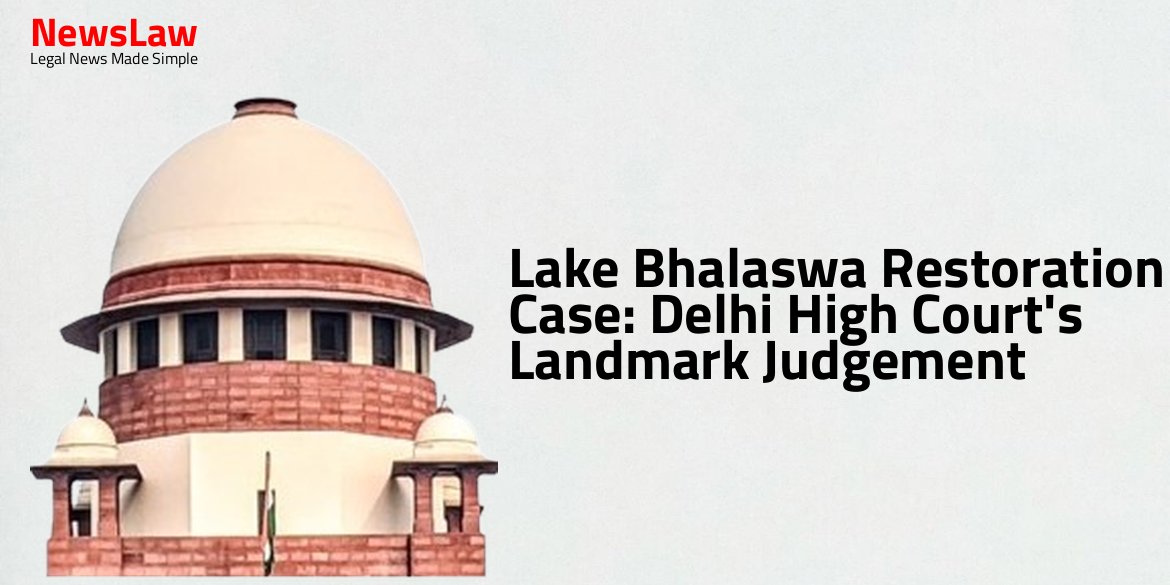In a landmark Supreme Court case titled Karnataka Biotics vs. The Board for Industrial Finance and Reconstruction, the issue of penalty imposition under the Foreign Trade Act was deliberated upon. The appellant, Karnataka Biotics, challenged the penalty of Rs. 23,38,882 imposed for non-fulfillment of export obligations. Stay tuned to learn about the court’s decision and its significance in the realm of trade regulations and penalties.
Facts
- Karnataka Biotics, formerly known as Emmellen Biotech Pharmaceuticals Limited, amalgamated with Karnataka Malladi Biotics Limited under the Bombay High Court’s order dated 24 March 2009.
- The Board for Industrial Finance and Reconstruction (BIFR) declared Karnataka Biotics a sick unit under SICA in a meeting on 11 August 1999.
- A penalty of Rs. 23,38,882 was imposed on Karnataka Biotics for non-fulfillment of export obligation under the license, and subsequent appeals and reviews were unsuccessful.
- Karnataka Biotics filed a Writ Petition challenging the penalty imposed under the provisions of the Foreign Trade (Development and Regulation) Act, 1992 before the Karnataka High Court.
- The Writ Petition was initially dismissed, but Karnataka Biotics later succeeded in a Writ Appeal where the bank guarantee furnished by the company was enforced to recover Rs. 4,86,800.
- The company submitted a rehabilitation proposal to the operating agency following its designation as a sick unit under SICA.
- A demand notice for the differential duty was issued to Karnataka Biotics on 3rd April 2002 due to the concessional duty benefit enjoyed by the company.
- An order-in-original imposing a penalty on Karnataka Biotics was passed by the third respondent on July 16, 2004, which was later challenged through multiple legal avenues without success.
- The appeal was dismissed as Karnataka Biotics had withdrawn the earlier Writ Petition without reserving the right to reagitate the issues.
- The Division Bench granted permission to withdraw the Writ Petition with the liberty to file a fresh one on the same cause of action within a week.
- The Single Judge’s order dated 14th November 2017 dismissed the Writ Petition.
- An application was made to withdraw the Writ Petition with liberty to file a fresh petition by impleading proper parties.
Also Read: Judicial Insight: Examining the Ruling in Hanna vs. The State of Uttar Pradesh
Arguments
- The appellant’s counsel argued that there was a duty waiver, hence no penalty should be imposed.
- The respondents’ counsel contended that the rehabilitation scheme of Karnataka Biotics did not include a waiver of penalty for non-fulfillment of export obligation.
- The appellant’s counsel highlighted the illegality of the penalty imposed under Section 11(2) of the FT Act.
- It was pointed out that both the Single Judge and the Division Bench overlooked the liberty granted to file a fresh petition by Karnataka Biotics.
- The imposition of penalty was justified by the respondents due to the contravention of the license terms.
- The rehabilitation scheme by BIFR included a waiver of custom duty for non-fulfillment of export obligation by Karnataka Biotics.
- The penalty of Rs. 23,38,882/- was imposed by the 3rd respondent under Section 11(2) of the FT Act.
- Learned senior counsel appearing for the appellant relied upon various decisions of the High Courts of Gujarat and Delhi to support his contentions.
Also Read: National Highways Authority of India v. M/s. ITD Cementation India Limited
Analysis
- The Customs duty waiver was granted as per the relevant waiver clause.
- The penalty of Rs. 23,38,882/- was imposed under Section 11(2) for non-compliance with export obligations.
- The appellant’s predecessor did not attempt any contravention of the Foreign Trade Act, Rules, or orders.
- The appellant filed a fresh Writ Petition after the amalgamation, with liberty to do so.
- The Division Bench’s order clearly granted liberty to file a fresh petition.
- The obligation was to export finished goods within five years, not related to import/export contravention.
- Appellant was involved in export of pepper without valid export authorization under the FT Act.
- The appellant sought waiver of penalty imposed under section 11 of the FT Act based on a rehabilitation scheme.
- The waiver granted under the rehabilitation scheme was only for customs duty and not for penalties under the FT Act.
- Section 11 of the FT Act prohibits export or import in contravention of its provisions, rules, and foreign trade policy.
- Penalties under section 11 range from ten thousand rupees to five times the value of goods/services/technology involved in the contravention.
- There is no allegation of contravention of export or import policy against the appellant or its predecessor.
- Strict construction must be applied to the export and import policy.
- Section 11(2) is a penal provision.
Also Read: Analysis of Criminal Appeal No. 1637 of 2021: Alauddin & Ors. vs. The State of Assam & Anr.
Decision
- Penalty cannot be sustained as the demand for penalty was not supported.
- Appeal allowed with no orders as to costs.
- Impugned judgments and orders of the learned Single Judge and Division Bench set aside.
- Order-in-Original dated 16 July 2004 (Annexure P-3) also set aside.
Case Title: M/S. EMBIO LIMITED Vs. DIRECTOR GENERAL OF FOREIGN TRADE (2024 INSC 408)
Case Number: C.A. No.-006394-006394 – 2024



